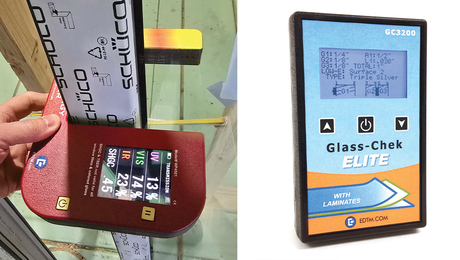I’m confused about this whole issue regarding GFI protection. What’s the criteria for determining whether a circuit should be GFI protected?
If every kitchen and bath requires GFI protection, why doesn’t every laundry room require it? If every whirlpool tub requires it, why doesn’t every washing machine require it? If every screened-in porch requires it, why wouldn’t every unfinished attic require it?
Or am I wrong about the code?
New knowledge is priceless.
Used knowledge is even more valuable.



















Replies
Do you ever get into the washing machice while it is running?
Answer that and you will know why a GFCI is not required.
There are 2 basic areas where GFCI's are required.
One is where you are likely to get BETWEEN an electrical appliance a "pool" of grounded water. That covers small appliances being dropped into a kitchen or bathroom sink, whirpools, hot tubs, and swimming pools.
The other is where appliances are often plug and unpluged and connections broker and/or used with extension cords that can be damaged and you are standing on surfaces that can be conductive.
That includes basements and garages with slab floors and external receptacles.
An attic you are most likely not standing on a conductive service unless you are in a flood.
And the washing machine is grounded via the the 3 prong plug and grounded receptacle. And since it is not frequently plugged and unpluged then it very like not damages. And unless you take a bath in the washing machine or like to hold it over a sink while it is running then the other case does not apply either.
.
A-holes. Hey every group has to have one. And I have been elected to be the one. I should make that my tagline.
There are a few other things that come into play.
First of all, the code panels were slow to accept the 'new and unproven' GFI technology when it came out in the 70's. The use has expanded, step by step, ever since then. Some of this is gradual expansion can be attributed to greater acceptance of the technology, some to greater appreciation of the hazards present, and some simply because different folks decide each part of the NEC.
Secondly, the NEC is, like all codes, an attempt to define minimum safety standards. Not perfect standards, not 'best' design, only to define a 'minimum.'
Keep in mind that there is absolutely nothing in any code that prevents you from using a GFI nearly anywhere you want.
"Keep in mind that there is absolutely nothing in any code that prevents you from using a GFI nearly anywhere you want."
I can't quote chapter and verse, but I seem to remember reading about one circumstance where GFI's were not permitted on a lighting circuit. Seems like it was a stairwell...or something of that nature.
I could be wrong, though. New knowledge is priceless.
Used knowledge is even more valuable.
I'd love to see that reference. Perhaps you are recalling a statement I made, regarding the 2008 NEC, where the stairwell was just about the only part of a house not required to be either GFCI or AFCI protected. Yet, 'not required' is quite different from 'forbidden.' Now, if your house has a magnetic crane, or a fire pump supplied sprinkler system, or even a central station alarm system, then there would be a prohibition of using GFI protection on those circuits.
"Perhaps you are recalling a statement I made, regarding the 2008 NEC, where the stairwell was just about the only part of a house not required to be either GFCI or AFCI protected."
Yep, that's probably what had me thinking that. The word "stairwell" kept coming to mind.New knowledge is priceless.
Used knowledge is even more valuable.
about one circumstance where GFI's were not permitted
Which gets us to "not recommended" versus "not permitted."
It's not recommended to put your fridge or freezer on a GFCI circuit--not noticing the "trip" until you open the door could be bad.
Occupational hazard of my occupation not being around (sorry Bubba)